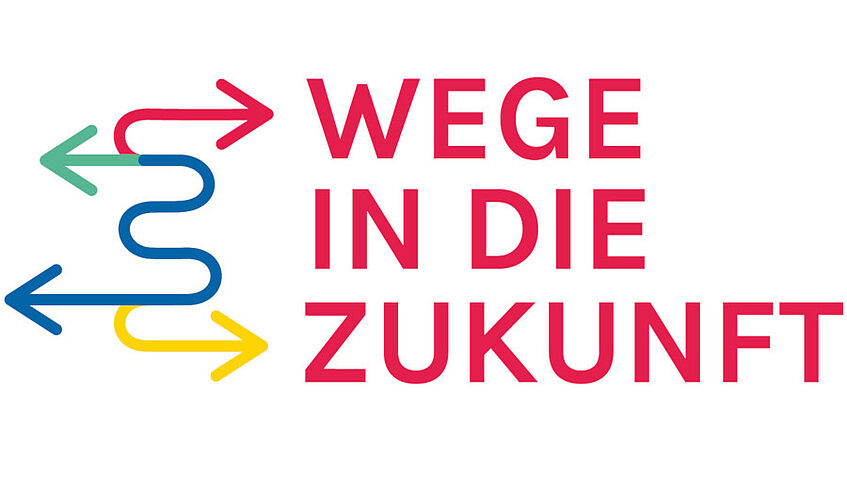
Project “Pathways to the Future”
A longitudinal study on the social integration of young people in Vienna
Follow-up projects
The wide range of subjects and methods on which the departmental project focuses provides the basis for further research and doctoral projects, aimed at further investigating specific aspects of the social integration of young people in Vienna.
-
Developing AI tools for sharing intelligence on the local labour markets of VET graduates (AIVET)
Between 2023 and 2026, AIVET is piloting a tool that helps analysts to inform VET local decision-makers with skills intelligence driven by AI in Barcelona, Sofia and Vienna. Interviews with graduates and focus groups with employers will triangulate this information. The conclusions will be discussed in participatory workshops and a training activity. An institute of statistics and several VET providers will participate in design, research and participatory activities as associated partners in the three cities. Data from the project "Pathways to the Future" will be used for this project.
Funding
Erasmus+ (Cooperation Partnership 2023-1-ES01-KA220-VET-000153882)Project lead
Xavier RamblaProject staff
Yuri Albert Kyrill Kazepov
Niklas Lucca Pernhaupt -
Youth and Social Inequality in Longitudinal Section. Interdisciplinary Analyses on the Reproduction and Transformation of Inequality in the Life Realities of Viennese Youth (J:Ung)
Finding an independent social position as a central task of the life phase of youth is of fundamental importance for questions of social reproduction and transformation. This positioning process is characterized by a pluralization of life plans on the one hand and a persistence of cross-generational social inequality on the other.
Against this backdrop, the project focuses on how young people deal with these challenging social conditions and the associated processes of transformation and reproduction of social inequality. An interdisciplinary team, which combines educational and sociological perspectives as well as different thematic and methodological foci, is dedicated to this research concern.
Data derived from the project “Pathways to the Future” by the Department of Sociology builds the basis for a secondary analysis in J:Ung, combining qualitative and quantitative analyses in order to work on individual research questions. The thematic focal points are the areas of ideas about the future (Malschinger), professional and educational biographies (Duncan) and political commitment (Danner).
Funding
Austrian Academy of Sciences -
Doc-team Fellowship for Michael Duncan and Paul Malschinger (Department of Sociology) in cooperation with Katharina Danner (Department of Educational Science)Project lead
Jörg Flecker
Veronika WöhrerProject staff
Michael Duncan
Paul Malschinger
Katharina DannerDuration
10/2022 - 09/2025 -
When dreams (do not) come true: professional aspirations and their chances of realisation with a focus on ethnicity and social position
Based on the longitudinal study Pathways to the Future, which uses a mixed-methods approach, we investigate the professional aspirations of students attending so-called new secondary schools (Neue Mittelschule) in Vienna. More specifically, we examine how these aspirations differ according to the students’ ethnicity, social position and gender, how they can explain different educational pathways and positions in the labour market and how they influence educational and professional careers. In accordance with Bourdieu, it is assumed that, in the educational habitus, differences relating to what is perceived as desirable and worthwhile are group-specific. In addition, the methodological question arises as to how to reach and survey the comparatively vulnerable group of students attending a so-called new secondary school. The study aims at a differentiated understanding and an assessment of social inequality.
Funding
Jubiläumsfonds der Österreichischen Nationalbank (OeNB)Project lead
Susanne VoglProject staff
Franz Astleithner
Raphaela KoglerDuration
11/2019 - 206/2022 -
The creation of action space(s) through young people’s leisure life practices - Bridging the gap between qualitative and quantitative research approaches
Adolescence as a stage of life has become more diverse, but it is also shaped by insecurities and changing mechanisms of social reproduction. Against this background, this doctoral project explores to what extent adolescents are able to develop resources in their leisure time, which is an important area of socialisation besides family and school, to expand their scope of action. Based on theoretical literature and qualitative interviews, we identified dimensions that enable the assessment of these processes through quantitative standardised surveys. After an extensive pretest phase, the measuring instrument that was developed was used in the quantitative panel of the Pathways to the Future project. The analysis focuses on informal leisure contexts as these are less visible but of central importance for adolescents’ ability to act.
Funding
uni:docs Fellowship Programme for Doctoral Candidates of the University of ViennaPhD candidate
Barbara Mataloni
